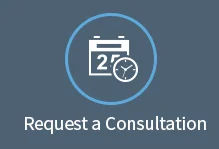Obesity & COVID-19 Q&A
Obesity & COVID-19 Q&A
In light of the current COVID-19 pandemic, many have become increasingly aware of their health and how compromised health may make them more susceptible to dangerous complications of the coronavirus. More and more scientific data is proving that those with obesity and related conditions have a higher risk of developing serious complications from COVID-19.
As your lifelong partners in health, we feel it is important to provide information on health risks associated with COVID-19 that may be higher in the obese population as well as steps that can be taken to reduce them.
How can obesity increase my risk of complications from COVID-19?
According to the CDC, people with severe obesity (a BMI of 40 or higher) face a higher risk of acute respiratory distress syndrome (ARDS). This serious breathing problem is a known complication of COVID-19 and may make it more difficult for doctors to provide necessary respiratory support.1
What are other risks associated with obesity and COVID-19?
Individuals with obesity are more likely to suffer from other serious health and conditions, many of which can increase the dangers of COVID-19. Some obesity-related conditions that can increase risks of COVID-19 include:2
Heart disease and heart conditions: COVID-19 can cause respiratory system damage that may put added stress on an already weakened heart. This, in turn, can make COVID-19 symptoms worse.
Diabetes: Diabetes is a common comorbidity for people with obesity, and can compromise the immune system’s ability to fight off viruses like the coronavirus. Diabetes can also cause health problems that may make it harder for a person to overcome COVID-19. Additionally, hormones the body releases to fight illness can raise blood sugar levels. This means that diabetic patients may need more insulin than normal and could be at risk for complications like diabetic ketoacidosis.3
What can I do to stay safe?
These days, we’re all concerned about protecting ourselves against COVID-19. For people with obesity who may be at greater risk of serious complications of this virus, it’s especially important to take extra steps to stay safe. We at St. Louis Bariatrics are committed to ensuring the health of our patients and their loved ones, and we strongly recommend the following precautions:
- Self-isolate. This goes for everybody: stay home as much as possible to reduce your risk of exposure to the coronavirus (and your risk of exposing others). When out in public, wear a mask and try to maintain 6 feet of distance from others. Individuals at higher risk for COVID-19 complications should be especially careful: consider having groceries, supplies, and medications delivered, and switch your doctor visits to virtual appointments when possible.
- Wash your hands thoroughly and often.
- Avoid touching your face.
- Regularly clean and disinfect your home and surfaces you touch frequently.
- Continue taking all of your medications as prescribed. Also make sure you have a 2-week supply of medications (prescription and over-the-counter) on hand whenever possible.
- Make sure your vaccinations are up-to-date.
Finally, if you don’t feel well—seek help. We realize that many people are avoiding emergency rooms, urgent care centers, and doctors’ offices in order to reduce exposure and prevent over-taxing healthcare systems. However, if your underlying condition is impacting your health or wellbeing, you need to address it. Most healthcare centers and providers have put protections into place to reduce exposure so they can continue doing what’s most important: keeping you healthy.
How We are Protecting our Patients and Staff
At St. Louis Bariatrics, we understand that many of our patients can’t delay treatment with us during the COVID-19 pandemic. When at all possible, we’re connecting with our patients online so that they are able to maintain self-isolation. In cases where we see patients face-to-face we have implemented mandatory temperature checks. We are also testing all patients for COVID-19 before undergoing surgery or any medical procedures.
Things have changed a lot with the onset of the COVID-19 pandemic. One thing that hasn’t changed—and never will—is our commitment to our patients and their health. To learn more about how we can help you achieve your weight loss goals while staying safe, please contact us today.
References
1 Centers for Disease Control and Prevention (CDC). Groups at higher risk for severe illness. Available: https://www.cdc.gov/coronavirus/2019-ncov/need-extra-precautions/groups-at-higher-risk.html. Accessed May 28, 2020.
2 Centers for Disease Control and Prevention (CDC). Health effects of overweight & obesity. Available: https://www.cdc.gov/healthyweight/effects/index.html. Accessed May 28, 2020.
3 Centers for Disease Control and Prevention (CDC). Diabetes: managing the flu and sick days. Available: https://www.cdc.gov/diabetes/managing/flu-sick-days.html. Accessed May 28, 2020.






